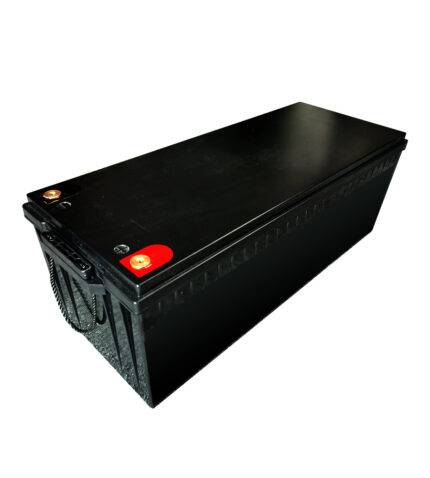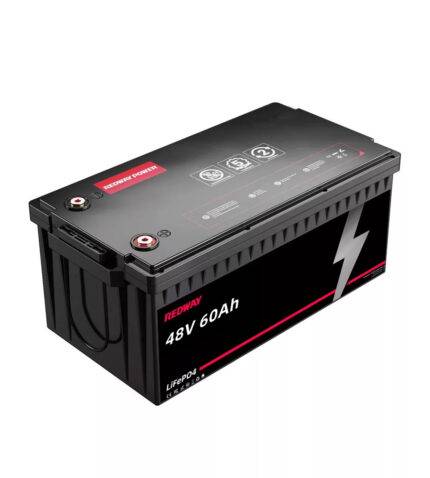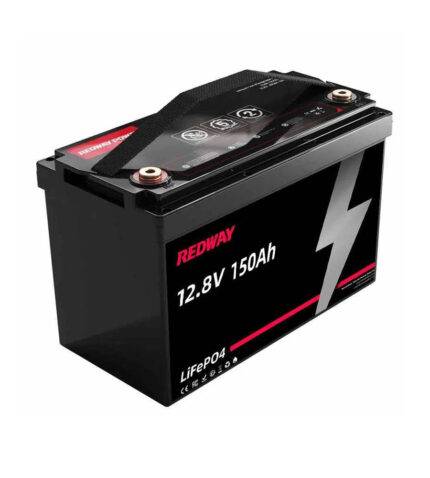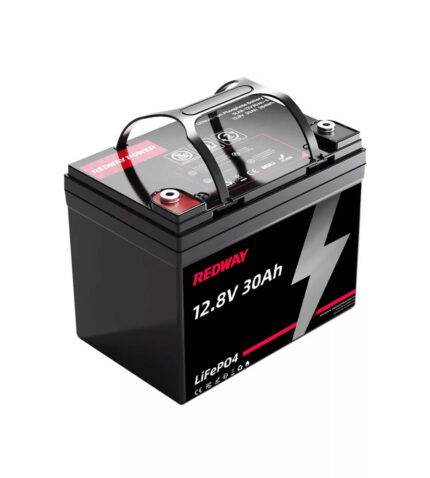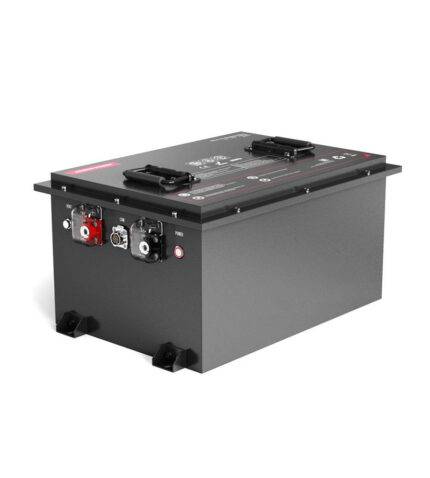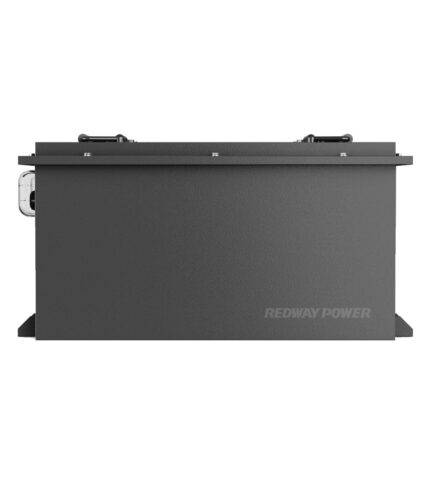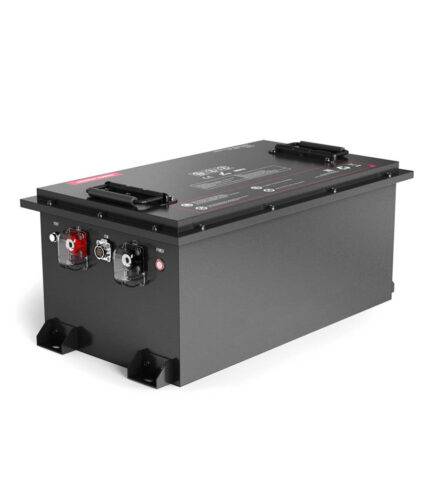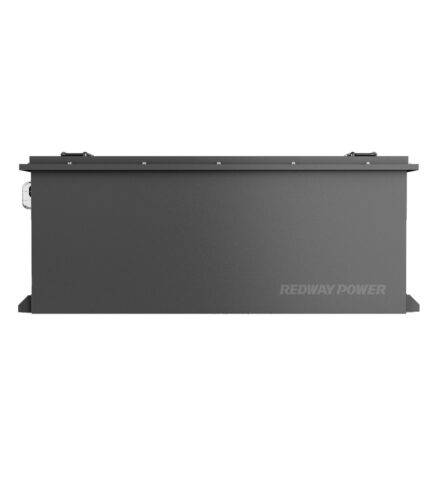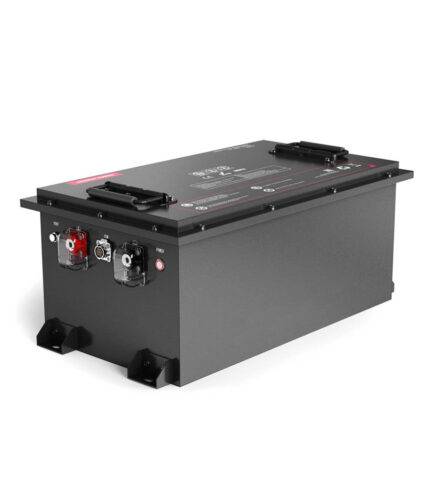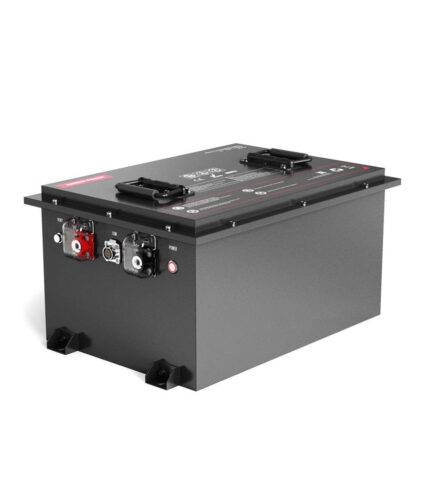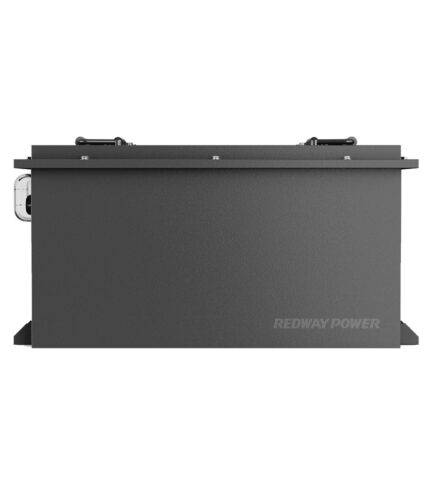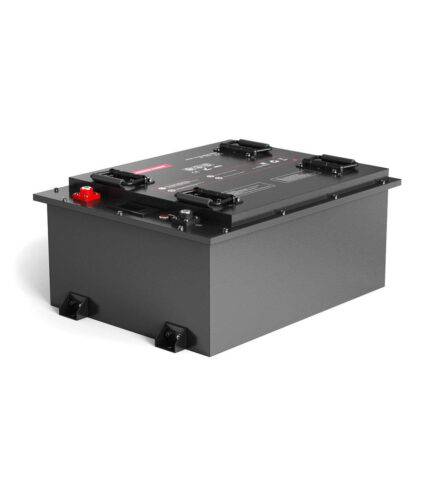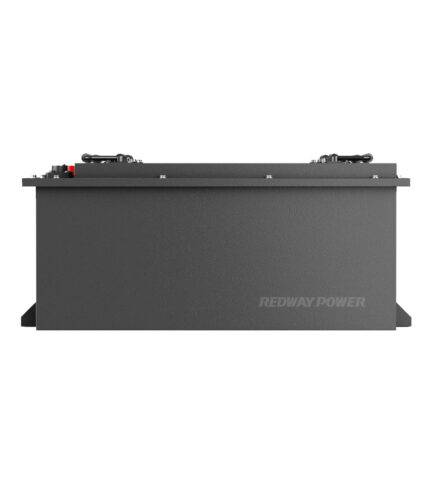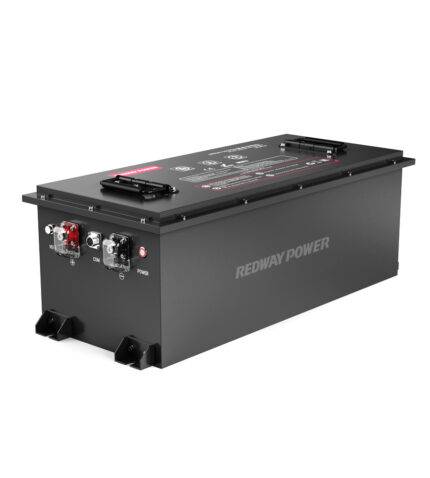- Forklift Lithium Battery
-
48V
- 48V 210Ah
- 48V 300Ah
- 48V 420Ah (949 x 349 x 569 mm)
- 48V 420Ah (950 x 421 x 450 mm)
- 48V 456Ah
- 48V 460Ah (830 x 630 x 590 mm)
- 48V 460Ah (950 x 421 x 450 mm)
- 48V 460Ah (800 x 630 x 600 mm)
- 48V 460Ah (820 x 660 x 470 mm)
- 48V 500Ah
- 48V 560Ah (810 x 630 x 600 mm)
- 48V 560Ah (950 x 592 x 450 mm)
- 48V 600Ah
- 48V 630Ah
-
48V
- Lithium Golf Cart Battery
- 12V Lithium Battery
12V 150Ah Lithium RV Battery
Bluetooth App | BCI Group 31
LiFePO4 Lithium
Discharge Temperature -20°C ~ 65°C
Fast Charger 14.6V 50A
Solar MPPT Charging - 24V Lithium Battery
- 36V Lithium Battery
- 48V Lithium Battery
-
48V LiFePO4 Battery
- 48V 50Ah
- 48V 50Ah (for Golf Carts)
- 48V 60Ah (8D)
- 48V 100Ah (8D)
- 48V 100Ah
- 48V 100Ah (Discharge 100A for Golf Carts)
- 48V 100Ah (Discharge 150A for Golf Carts)
- 48V 100Ah (Discharge 200A for Golf Carts)
- 48V 150Ah (for Golf Carts)
- 48V 160Ah (Discharge 100A for Golf Carts)
- 48V 160Ah (Discharge 160A for Golf Carts)
-
48V LiFePO4 Battery
- 60V Lithium Battery
-
60V LiFePO4 Battery
- 60V 20Ah
- 60V 30Ah
- 60V 50Ah
- 60V 50Ah (Small Size / Side Terminal)
- 60V 100Ah (for Electric Motocycle, Electric Scooter, LSV, AGV)
- 60V 100Ah (for Forklift, AGV, Electric Scooter, Sweeper)
- 60V 150Ah (E-Motocycle / E-Scooter / E-Tricycle / Tour LSV)
- 60V 200Ah (for Forklift, AGV, Electric Scooter, Sweeper)
-
60V LiFePO4 Battery
- 72V~96V Lithium Battery
- Rack-mounted Lithium Battery
- E-Bike Battery
- All-in-One Home-ESS
- Wall-mount Battery ESS
-
Home-ESS Lithium Battery PowerWall
- 24V 100Ah 2.4kWh PW24100-S PowerWall
- 48V 50Ah 2.4kWh PW4850-S PowerWall
- 48V 50Ah 2.56kWh PW5150-S PowerWall
- 48V 100Ah 5.12kWh PW51100-F PowerWall (IP65)
- 48V 100Ah 5.12kWh PW51100-S PowerWall
- 48V 100Ah 5.12kWh PW51100-H PowerWall
- 48V 200Ah 10kWh PW51200-H PowerWall
- 48V 300Ah 15kWh PW51300-H PowerWall
PowerWall 51.2V 100Ah LiFePO4 Lithium Battery
Highly popular in Asia and Eastern Europe.
CE Certification | Home-ESS -
Home-ESS Lithium Battery PowerWall
- Portable Power Stations
48V (51.2V) 50Ah Lithium Battery
• Cell: LiFePO4
• MOQ: 50
• Delivery: 20 Days
• Customizable / OEM / ODM: Yes
• Factory: Redway, Dongguan, Guangdong, China
• Delivery Terms: FOB, EXW, CIF
• Payment: T/T, L/C, PayPal
• Sea / Air / Land Shipment: 10FT, 20FT, 40FT, 60FT
Description
This battery is the 48V (51.2V) 50Ah Lithium Battery from Redway Power, a reputable manufacturer based in China that specializes in high-quality lithium-ion batteries. Engineered with advanced LiFePO4 technology, this battery provides reliable energy solutions for a wide range of applications, ensuring optimal performance and safety.
Key Features
- High Energy Density: With a nominal capacity of 50Ah and an energy output of 2,560Wh, this battery is perfect for powering various devices efficiently.
- Durable Design: The battery features an IP65 rating, providing excellent protection against dust and water, making it suitable for outdoor and industrial use.
- Long Lifespan: Designed to last over 4,000 cycles at 80% depth of discharge (DOD), this battery minimizes the need for frequent replacements, offering great value.
- Smart Battery Management System (BMS): Equipped with an intelligent BMS that protects against overcharging, overheating, and short circuits, ensuring safe operation.
- Customizable Options: As an OEM provider, Redway Power offers tailored solutions to meet specific customer requirements, including dimensions and additional functionalities.
Applications
The 48V (51.2V) 50Ah Lithium Battery is versatile and ideal for a variety of applications, including:
- Golf carts
- Sightseeing cars
- Electric scooters and e-rickshaws
- Automated Guided Vehicles (AGVs)
- Floor scrubbers and cleaning machines
- Home energy storage systems (ESS)
- Solar power systems and off-grid living
- Electric forklifts and marine applications
With a charge voltage of 58.4V and a discharge voltage of 40V, this battery is optimized for various operational needs. It operates effectively across a temperature range from -20°C to 65°C, making it suitable for different environments.The lightweight design of the battery facilitates easy installation and integration into existing systems while ensuring that your equipment operates efficiently throughout the day. Additionally, it supports fast charging capabilities, allowing for quicker turnaround times between uses.
As a trusted factory in China, Redway Power is dedicated to delivering high-quality lithium-ion batteries that enhance productivity and sustainability in your operations. The 48V (51.2V) 50Ah Lithium Battery not only reduces downtime but also contributes to lower operational costs due to its efficiency and long lifespan.Investing in this battery means choosing a reliable power solution that meets the demands of modern electric vehicles and industrial applications while supporting your business’s growth and sustainability goals. Choose Redway Power for your lithium battery needs and experience unparalleled performance and service.
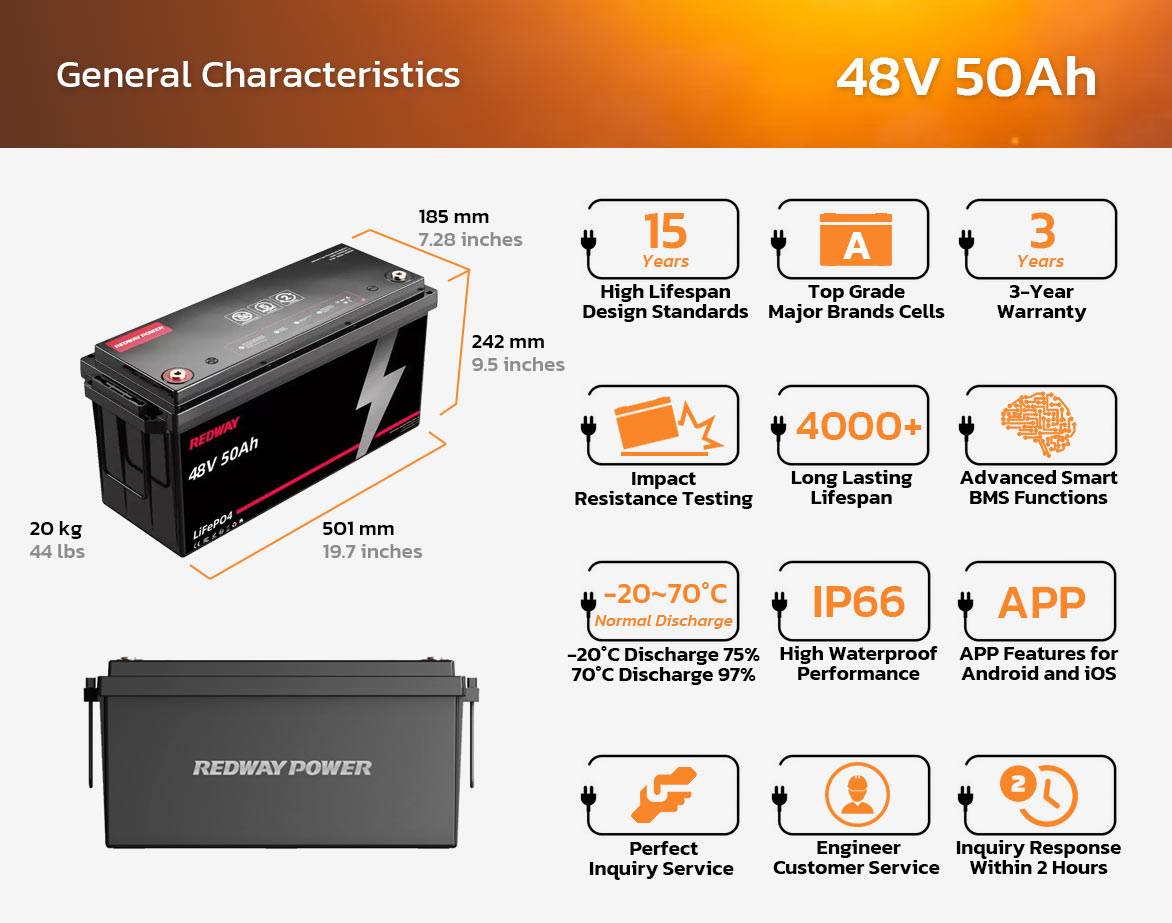
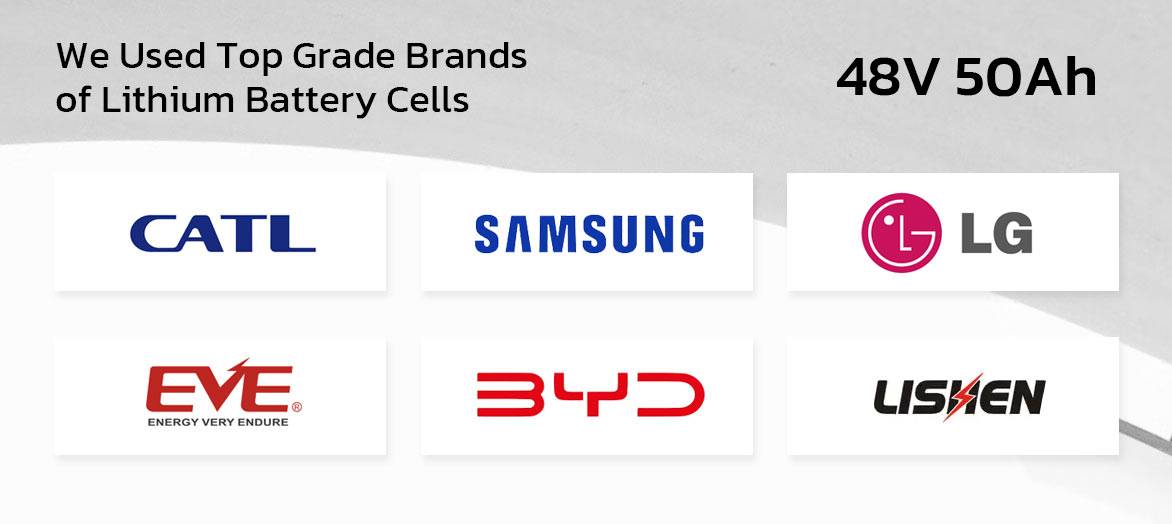
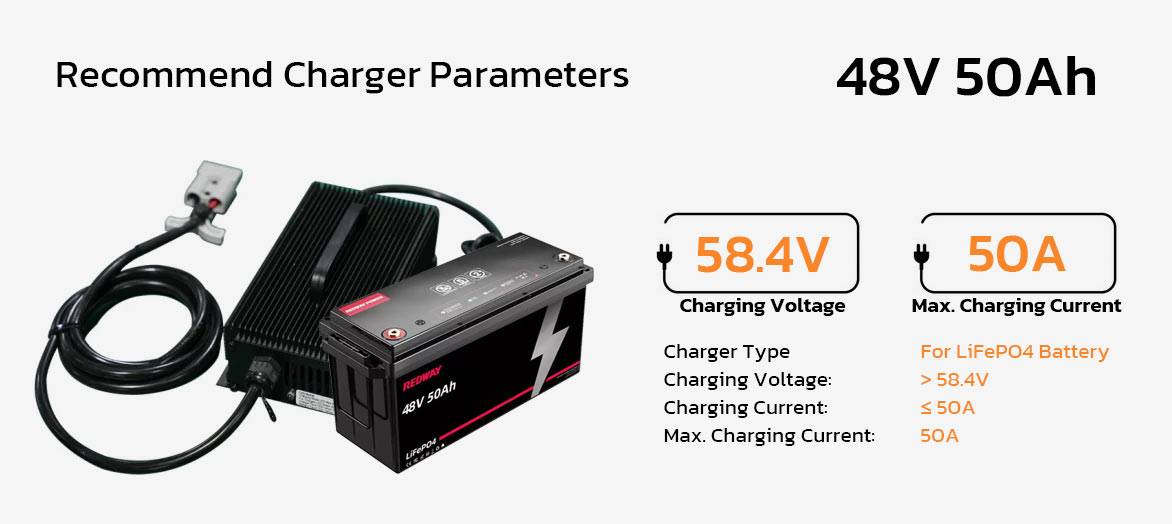
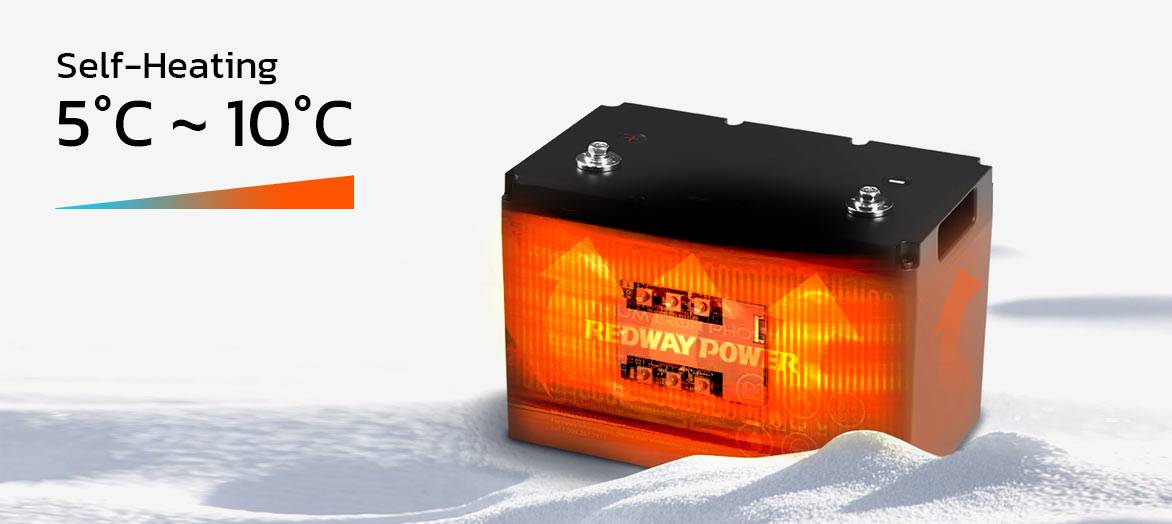
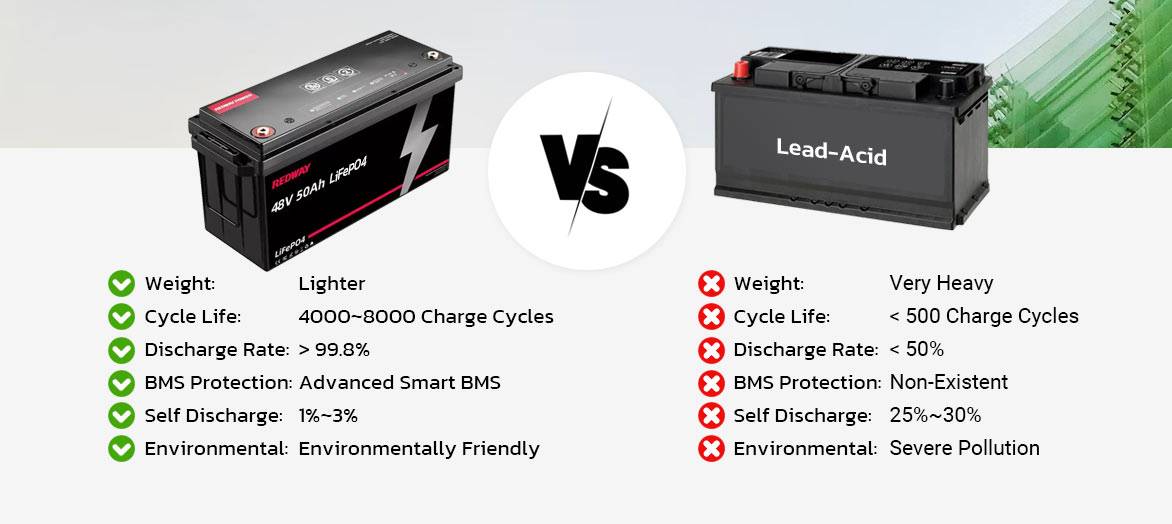
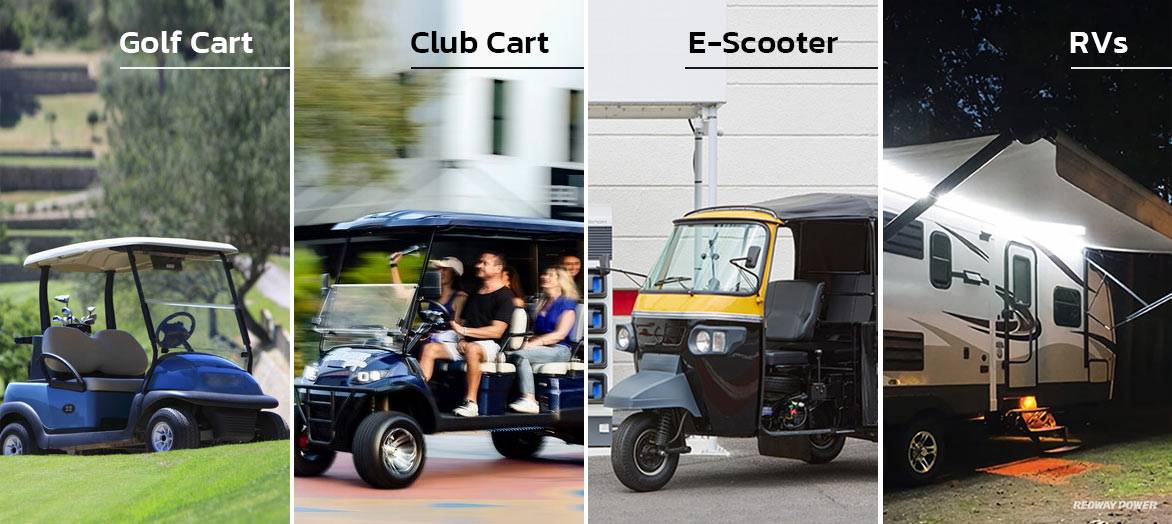
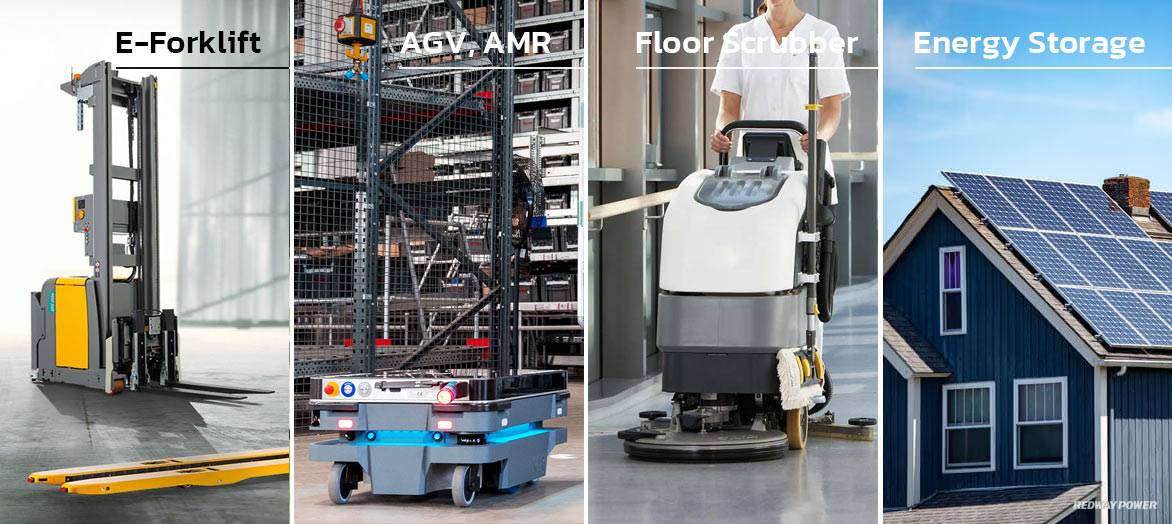
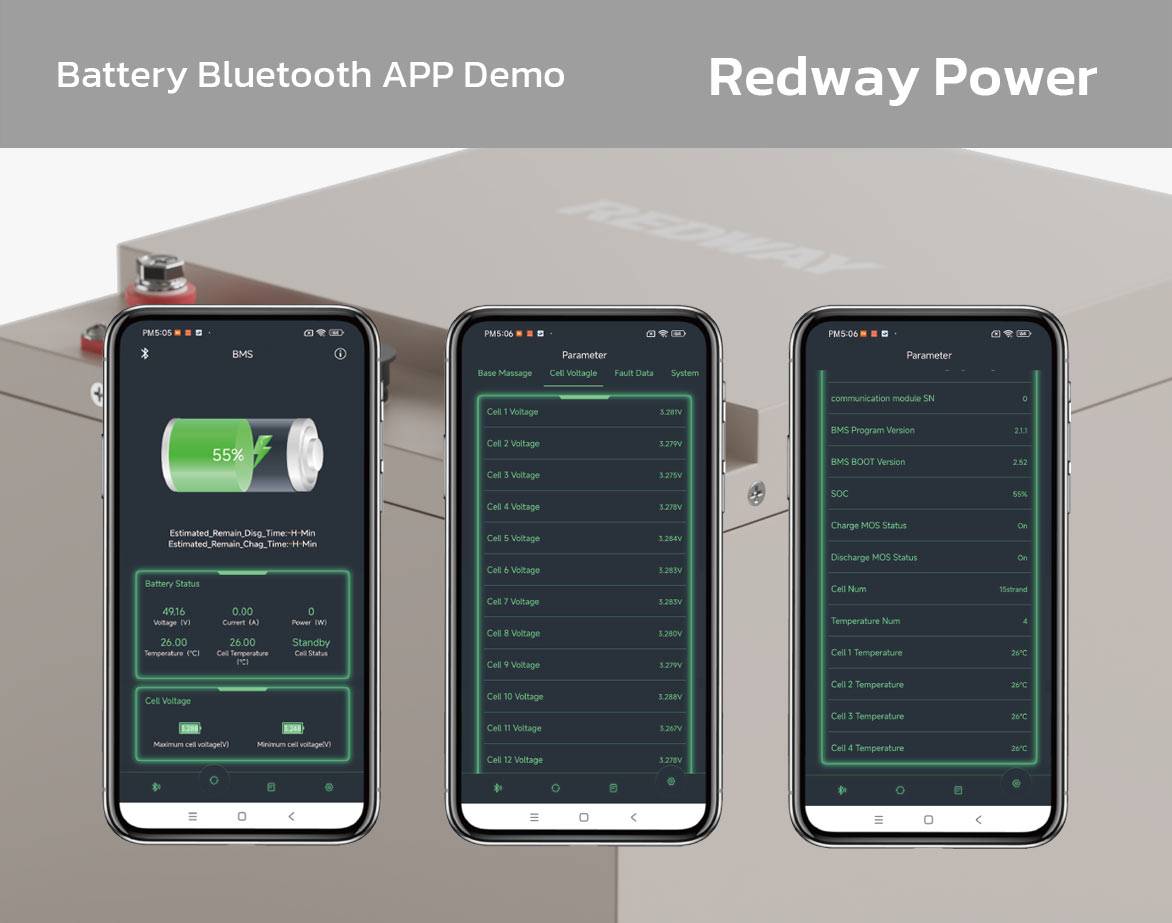
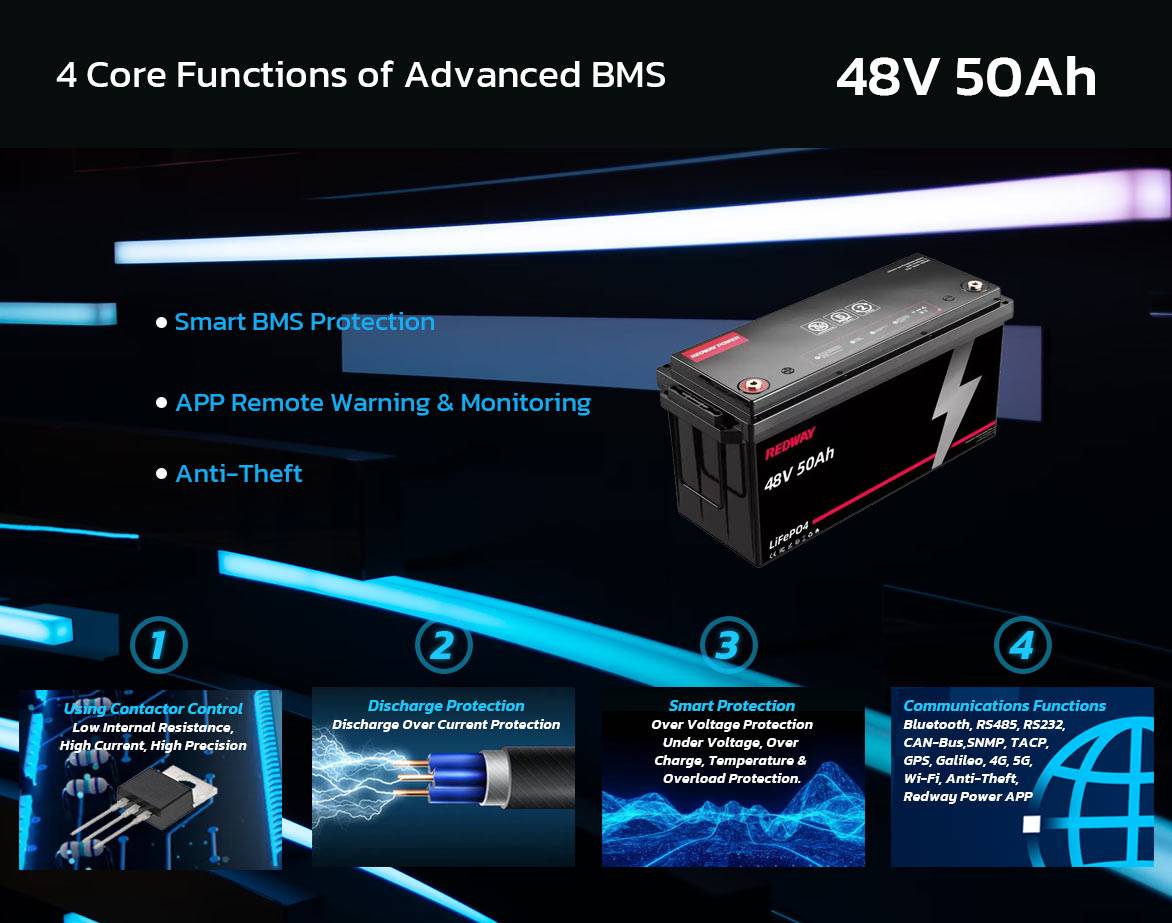
Specifications
| SPECS | |
|---|---|
| Applications | Golf Cart, Sightseeing Car, Club Car, 2~3 Wheels Electric Scooter, Electric Rickshaw, E-Trishaw, Floor Scrubber, Floor Cleaning Machine, Home ESS, Solar System, Off-grid Living, AGV, LGV, RGV, AMR, Electric Forklift, RVs, Motorhome, Marine Boat, Yacht, Fishing Boat, Trolling Motor, etc. |
| Lithium-ion Cell Type | LiFePO4 (LFP) |
| Nominal Voltage | 51.2V |
| Nominal Capacity | 50Ah |
| Nominal Energy | 2560Wh |
| Max Charge Voltage | 58.4V |
| Discharge Cut-off Voltage | 40V |
| Standard Charge Current | 10A (5 hours) |
| Fast Charge Current | 20A (3 hours) |
| Max Continues Charge Current | 50A (1C) |
| Max Continues Discharge Current | 50A (1C) |
| Peak Discharge Current | 100A (10s) 2C 200A (3s) 4C |
| Dimensions [L x W x H] | 501 x 185 x 242 mm |
| Weight | 20 kg |
| IP Rating | IP65 |
| Max Series Connection | 4S |
| Max Parallel Connection | 4P |
| Cycle Life | >4000 cycles (DOD 80% / 0.5C charge / 0.5C discharge) |
| Self-discharge | 2% (per month) |
| Charge Temperature | 0°C ~ 60°C |
| Discharge Temperature | -20°C ~ 60°C |
| Storage Temperature | 0°C ~ 35°C |
| Charger | Optional |
| LCD Display | Optional |
| Power Switch | Optional |
| Communication | Optional |
| Optional Upgrades | Self-heating / Bluetooth / APP / WiFi / 4G / GPS / LCD Display / RS485 / RS232 / CAN-bus / Anti-theft / Active Balance / Solar MPPT / Inverter / Fans Cooling / Power Switch / etc. |
| BMS | Smart BMS Protection: Short circuit / Over current / Over discharge / Over charge / Over voltage / Overload / Overheat / Over temperature / Low temperature / Low Voltage / Anti-theft / etc. |
| Battery Monitoring | Bluetooth APP |
| Terminal | M8 |
| Internal Fixation | Metal bracket or EVA sponge |
| Battery Case | ABS plastic |
| Design Life | 10 Years |
| Warranty | 5 Years |
| Silkscreen / Label Design & Printing / Laser Logo | Yes |
| User Manual | Yes |
| OEM / ODM / Customization | Yes |
| Shipment | Yes |
| Certifications | UL 1642 / UL 2054 / IEC 62133 / IEC 62619 / FCC CE / RoHS Middle East: ESMA / SASO South Africa: SABS MSDS / UN38.3 |
| Last updated | 2024-9-21 Alex |
Applications and FAQs
48V 50Ah LiFePO4 batteries offer significant upgrades over traditional deep cycle batteries, benefiting RVs, camping, and solar lighting applications. Compared to standard sealed lead-acid (SLA) batteries, they boast enhanced longevity and cost-effectiveness, making them a favored option for dependable power solutions in the market.
What is a 48V 50Ah lithium battery?
A 48V 50Ah lithium battery is a rechargeable energy storage device with a voltage of 48 volts and a capacity of 50 ampere-hours (Ah). Widely used in marine, RV, commercial, and industrial settings, it boasts high energy density, long cycle life, and efficient power delivery. With a continuous current output of 5 Amperes sustained over 10 hours, it offers reliable energy storage of 2.4kWh, catering to diverse applications.
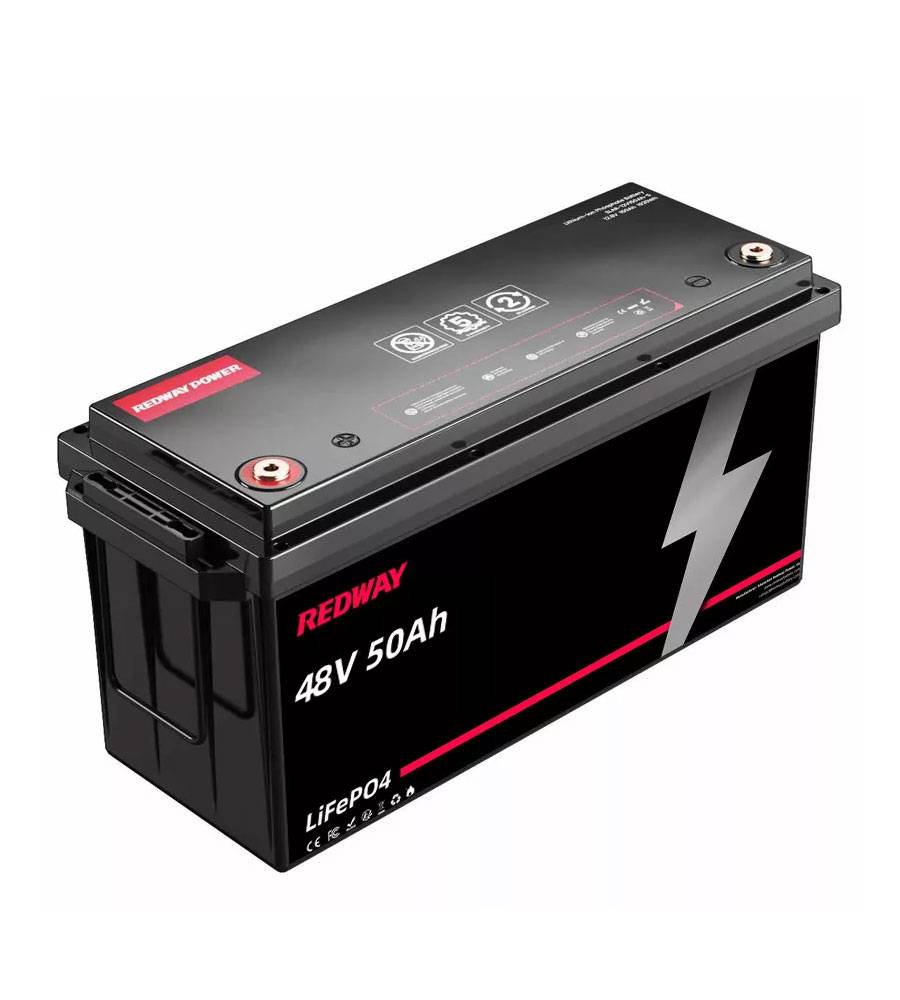
Where can you use a 48V 50Ah lithium battery?
A 48V 50Ah lithium battery finds application across various industries and settings due to its versatility and reliable energy storage capabilities:
- Marine: Powering marine vessels for propulsion, electronics, and onboard systems.
- RVs: Providing power for lighting, appliances, and entertainment systems in recreational vehicles.
- Commercial: Supporting energy storage solutions for backup power and grid stabilization.
- Industrial: Powering equipment, machinery, and backup systems in industrial settings.
- Renewable Energy: Storing energy from solar panels and wind turbines for later use.
- Emergency Power: Serving as backup power supplies for critical systems during outages.
In summary, the 48V 50Ah lithium battery is suitable for a wide range of applications where dependable energy storage is essential.
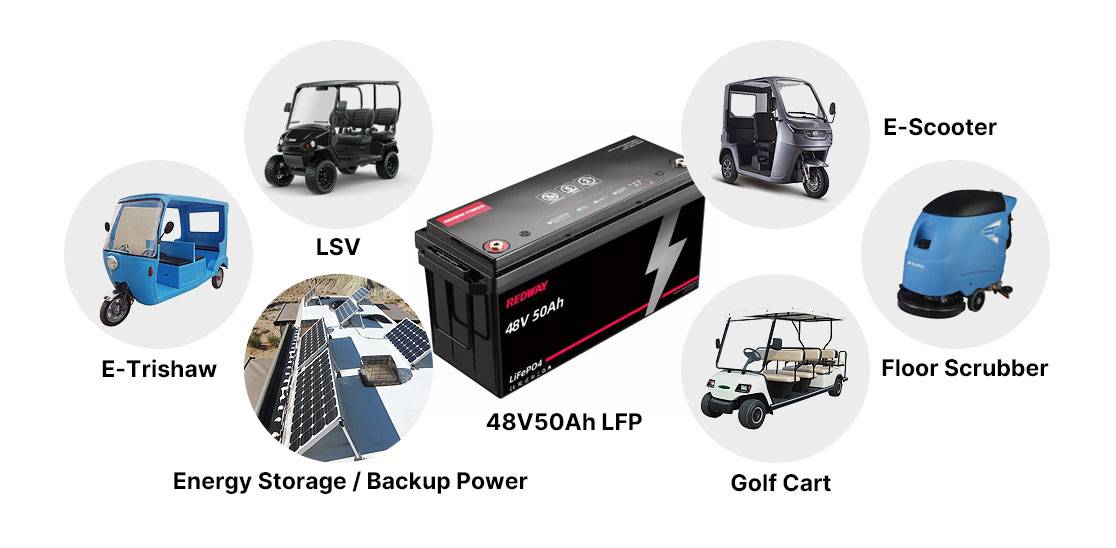
What are the advantages of a 48V 50Ah lithium-ion battery?
Here are the advantages of a 48V 50Ah lithium-ion battery, presented in bold and black:
- High Energy Density: Offers a higher energy density compared to other battery types, providing more power in a compact size.
- Long Cycle Life: Endures a greater number of charge-discharge cycles before capacity degradation, ensuring long-term reliability.
- Efficient Power Delivery: Charges more efficiently and delivers power consistently over the discharge cycle.
- Lightweight: Lighter than lead-acid batteries, making it easier to handle and install in various applications.
- Low Maintenance: Requires minimal maintenance compared to other battery types, reducing operational costs and hassle.
- Versatility: Suitable for a wide range of applications, including marine, RV, commercial, and industrial settings.
In summary, a 48V 50Ah lithium-ion battery offers a multitude of benefits, including flexibility in connectivity, freedom from memory effect, robust cycle life, enhanced energy density, low self-discharge, and eco-friendliness, making it an ideal choice for a wide range of applications.
What are the disadvantages of a 48V 50Ah lithium battery?
Here are the disadvantages of a 48V 50Ah lithium-ion battery:
- Higher Initial Cost:Lithium-ion batteries typically have a higher upfront cost compared to traditional lead-acid batteries, which may deter some users.
- Safety Concerns:There are safety concerns associated with lithium-ion batteries, including the risk of thermal runaway and fire if mishandled or damaged.
- Complex Recycling:Lithium-ion batteries require specialized recycling processes, which can be more complex and costly compared to lead-acid batteries.
- Limited Temperature Range:Lithium-ion batteries may have limited performance at extreme temperatures, affecting their efficiency and lifespan.
- Potential Degradation:Like all batteries, lithium-ion batteries can degrade over time, particularly if subjected to frequent deep discharges or high temperatures.
While these disadvantages exist, the benefits of lithium-ion batteries often outweigh them, especially for applications where high performance and energy efficiency are crucial.
How long will a 48V 50Ah battery last if fully charged?
The longevity of a fully charged 48V 50Ah battery is influenced by various factors, such as the type of load it supports, its rate of discharge, and the surrounding environment. An estimate of the battery's operating time can be obtained by dividing its capacity of 50Ah by the current draw of the load in amperes. For instance, if the load draws 10 amps, the battery is expected to last around 10 hours (50Ah ÷ 10A = 10 hours) under optimal circumstances. However, factors such as temperature, age, and depth of discharge can affect the actual runtime.
48V 50Ah lithium battery vs lead-acid battery, which is better?
Comparing a 48V 50Ah lithium battery to a lead-acid battery, the lithium battery generally offers several advantages:
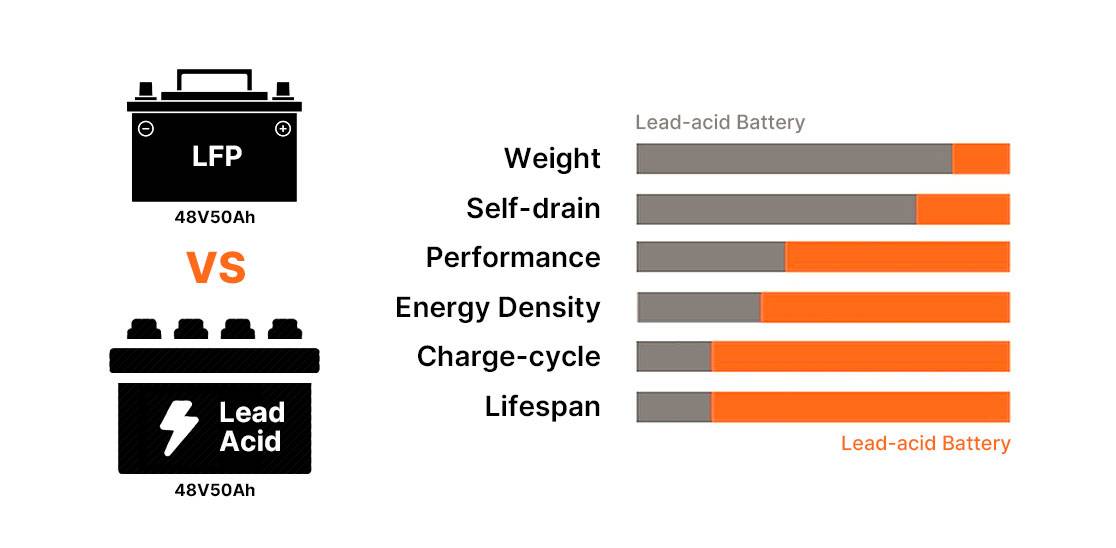
- Performance:Lithium batteries typically provide higher energy density, longer cycle life, and faster charging compared to lead-acid batteries, ensuring more consistent power output.
- Weight and Size:Lithium batteries are lighter and more compact than lead-acid batteries, making them preferable for applications where space and weight are critical factors.
- Cost-effectiveness:Although lithium batteries have a higher upfront cost, they often offer better long-term value due to their longer lifespan and lower maintenance requirements compared to lead-acid batteries.
- Safety:Lead-acid batteries are generally considered safer and more stable than lithium batteries, which can be prone to thermal runaway and fire if mishandled or damaged.
- Environmental Impact:Lead-acid batteries are more environmentally harmful due to their toxic materials and specialized recycling processes. Lithium batteries, though requiring proper disposal, have a lower overall environmental impact.
In summary, while lead-acid batteries have their advantages, 48V 50Ah lithium batteries typically offer superior performance, efficiency, and longevity, making them the preferred choice for many applications where reliable energy storage is essential.
What quality standards does Redway apply to the 48V 50Ah lithium battery?
Redway applies rigorous quality standards to its 48V 50Ah lithium battery, ensuring reliability and safety:
- Adherence to International Standards: Compliance with ISO 9001 for quality management systems and ISO 14001 for environmental management during manufacturing.
- Certifications for Safety and Compliance: Obtaining certifications like UL (Underwriters Laboratories) or CE (Conformité Européenne) to demonstrate adherence to safety and product standards.
- Rigorous Testing Procedures: Subjecting batteries to thorough testing, including the IEC 62133 test, to verify safety and prevent short-circuiting.
- Stringent Manufacturing Processes: Implementing strict manufacturing processes to maintain consistency and quality throughout battery production.
- Comprehensive Quality Control Measures: Employing extensive quality control measures to monitor and ensure battery quality and performance at every stage of production.
Adhering to these points ensures that the 48V 50Ah lithium battery meets industry and regulatory requirements, guaranteeing reliable performance and safety for users.
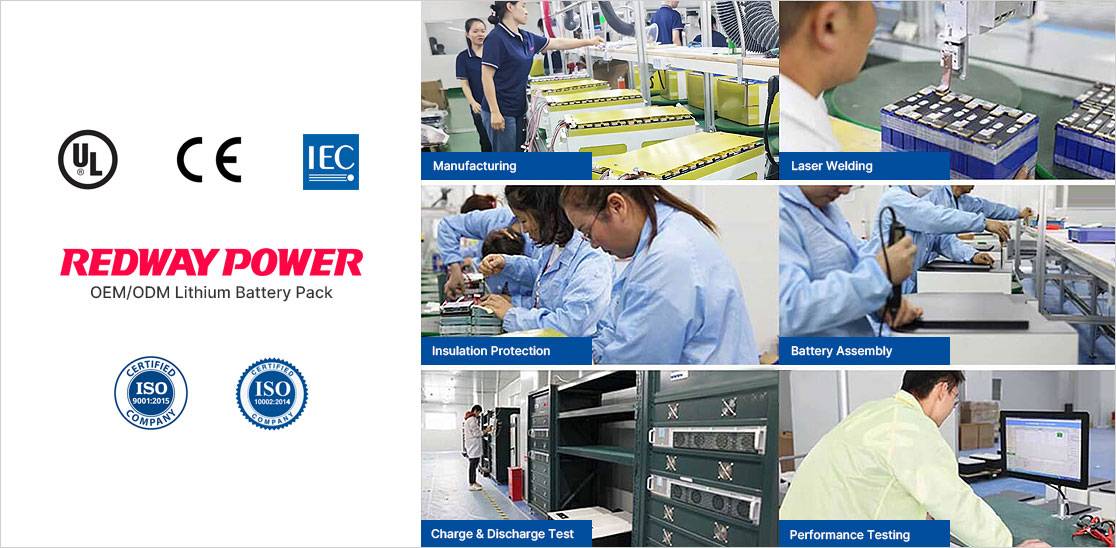
Is it safer to use a 48V 50Ah lithium-ion battery?
Yes. A 48V 50Ah lithium-ion battery is generally safer than a lead-acid battery in terms of safety. There are safety features built into lithium-ion batteries, and they are less prone to leakage, acid spills, and sulfation than lead-acid batteries. For lithium-ion batteries to be safe to use and to mitigate potential risks such as thermal runaway and fire, proper handling, storage, and charging practices are essential.
What are the features of a 48V 50Ah lithium-ion battery?
Many applications favor the 48V 50Ah lithium-ion battery due to its advantageous qualities. These include a high energy density, resulting in greater storage capacity in a compact and lightweight design compared to conventional lead-acid batteries. Additionally, it has a long cycle life and can withstand multiple charge and discharge cycles without notable loss of capacity, ensuring dependable performance over time. Moreover, it charges efficiently, has a low self-discharge rate, and requires minimal upkeep, making it both economical and trouble-free as a power solution.
What are the specifications of a 48V 50Ah lithium-ion battery?
When considering a 48V 50Ah lithium-ion battery, important details include its voltage rating of 48 volts and capacity of 500 ampere-hours (Ah). It is also necessary to take into account factors such as size, weight, maximum discharge rate, operating temperature range, expected cycle life, and built-in safeguards like protection circuits. Keep in mind that these specifications may vary between manufacturers and intended applications. Therefore, it is crucial to carefully review the datasheet or product specifications to ensure suitability and optimal performance for specific scenarios.
How to maintain a 48V 50Ah lithium-ion battery?
The following steps will help you maintain your 48V 50Ah lithium-ion battery effectively to maximize its lifespan and ensure optimal performance:
- Follow Manufacturer Guidelines:Adhere to all guidelines provided by the manufacturer before using the battery, and handle it with care to prevent damage.
- Regular Monitoring:Avoid leaving the lithium battery unattended for extended periods. Regularly check the battery status and charge rate, as it may gradually self-discharge when not in use.
- Charge Before Storage:Although lithium batteries have a low self-discharge rate, it's essential to charge or discharge them before extended storage periods. Avoid storing them at high temperatures, as this can reduce their lifespan.
- Handle with Precaution:Take precautions to protect the battery from excessive vibrations, as they can affect its performance. Additionally, manage temperature and prevent overcharging (high-voltage) to maintain optimal battery health.
You can ensure that your 48V 50Ah lithium-ion battery remains in great condition by following these maintenance practices.
How many 48v lithium-ion batteries can be connected together at once?
It is possible to connect up to two batteries in parallel. Ensure that the batteries are of the same model, have equal voltage, and avoid mixing batteries of different ages. For more specific information and safety guidelines, consult the manufacturer's recommendations or seek professional advice.
-
Parallel Connection: It is possible to connect up to two 48v lithium-ion batteries in parallel.
-
Same Model and Voltage: Ensure that the batteries being connected are of the same model and have equal voltage to maintain compatibility.
-
Avoid Mixing Batteries: Never mix batteries of different ages when connecting them in parallel.
-
Consult Manufacturer's Guidelines: For specific information and safety guidelines, refer to the manufacturer's recommendations or seek professional advice.
By following these guidelines, you can safely connect multiple 48v lithium-ion batteries together for your specific application or system requirements.
How long can this 48v lithium-ion battery be used for?
While Google does not currently have a featured snippet for this query, the duration can vary based on factors such as battery capacity, load power, and system efficiency. For example, a 15 kWh 48v lithium-ion battery can run a 900W load for approximately 16.67 hours. To determine the specific usage time for a particular battery, refer to the manufacturer's specifications or consult a professional for accurate guidance.
-
Capacity and Load: The duration for which a 48v lithium-ion battery can be used depends on its capacity and the power draw of the load.
-
Battery Efficiency: The efficiency of the battery system also affects the usage duration.
-
Example: A 15 kWh 48v lithium-ion battery can power a 900W load for approximately 16.67 hours.
-
Consult Manufacturer's Specifications: To determine the expected usage time for a specific 48v lithium-ion battery, refer to the manufacturer's specifications or seek professional advice.
By considering these factors and consulting the appropriate resources, you can determine the usage duration of a 48v lithium-ion battery that suits your specific needs.
What exactly are pouch cells?
Curious about pouch cells? Pouch cells are a type of lithium-ion battery that features a flexible, flat pouch-shaped design. They are constructed using a flexible, multilayered laminate structure consisting of an anode, a cathode, and a separator. The electrodes are coated with a conductive material, and the separator prevents direct contact between the electrodes. Pouch cells offer advantages such as compactness, lightweight, and flexibility in design, making them widely used in portable electronic devices, electric vehicles, and renewable energy storage systems.
-
Flexible Design: Pouch cells are a type of lithium-ion battery with a flat, flexible pouch-shaped design.
-
Construction: They are constructed using a flexible, multilayered laminate structure consisting of an anode, a cathode, and a separator.
-
Electrode Coating: The electrodes are coated with a conductive material, while the separator prevents direct contact between the electrodes.
-
Advantages: Pouch cells offer advantages such as compactness, lightweight, and flexibility in design.
These characteristics make pouch cells widely used in various applications, including portable electronic devices, electric vehicles, and renewable energy storage systems.
What are Renogy 48v battery’s greatest advantages?
Renogy batteries offer several significant advantages. They utilize up-to-date pouch cell technology, allowing for high performance and reliability. Additionally, these batteries can be connected in parallel for increased capacity, and they feature a self-heating function, making them suitable for colder temperature environments.
-
Up-to-date Pouch Cell Technology: Renogy batteries utilize the latest pouch cell technology, ensuring high performance and reliability.
-
Parallel Connection: These batteries can be connected in parallel, allowing for increased capacity and flexibility in system design.
-
Self-Heating Functionality: Renogy batteries are equipped with a self-heating function, making them suitable for use in colder temperatures.
By leveraging these advantages, Renogy 48v batteries provide efficient and reliable power storage solutions for various applications.














